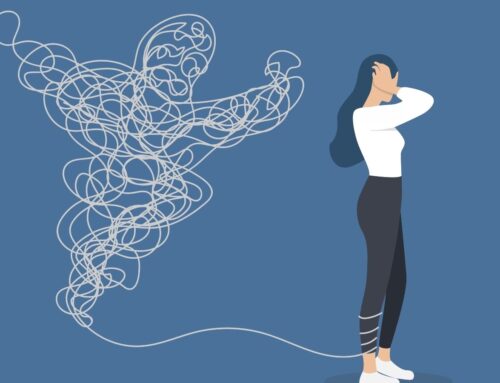4 Reasons to Consider Online Therapy
In a world where so many of the things we love to do have moved online, it can feel like we’re losing something essential. As anyone who has been to a Zoom birthday party can tell you, when socializing goes virtual, some intangible aspect of meaningful human interaction gets lost in the folds. So it’s no wonder that when people consider moving an experience as intimate as therapy online, they’re often struck by feelings of anxiety and gnawing concerns. Will the connection feel authentic? Will it be awkward? Will it echo those dreaded work meetings? Will the experience be less beneficial?
Well, actually, no. Over the past two decades, researchers have endeavored to shed light on the ins-and-outs of the online therapy experience — examining its successes and shortcomings. And the results show that it’s not only effective but, in many ways, preferable. Imagine that. If you’re considering making the switch for yourself or a loved one, here’s what you can expect.
It’s Just as Effective
Let’s start with what we are all wondering — yes! Online therapy can be equally as effective as in-person sessions.
First and foremost, you may think that you won’t benefit from a session if you and your therapist can’t share the same physical space. This is not the case. In their review on videoconferencing therapy, Susan G. Simpson and Corinne L. Reid reported that “both clients and therapists described being completely absorbed by the therapeutic process without feeling distracted by the technology.”
While it’s true that your therapist doesn’t have body language and other physical cues to pick up on like they would in in-person sessions, they have plenty of other indicators — such as your tone, pauses, patterns, and facial expressions — to help them stay attuned to your moods and needs.
And with a trained professional, this attention to detail makes for an engaging session. This heightened engagement is measurable. Clients were “more active, with higher levels of initiative, spontaneity, trust and disinhibition.” In fact, the review goes on to say that the tech-facilitated format has the “potential to enhance clinical results.”
It’s More Discreet
Though you might be very comfortable getting the mental health care that you need, this is not the case for everyone. Your teenager might not want you to know about the issues they need help with. Your partner might not want to admit that your comfort alone is not enough for them. Your friend might come from a circle where talking about mental health isn’t socially acceptable.
With online therapy, clients can circumvent these barriers. They can now search for, schedule, and obtain help discreetly, which can be liberating. For example, in a recent study, one-third of surveyed military personnel said that they would not be willing to talk to a counselor in-person, but would do so via a tech-facilitated alternative.
Other studies show that clients self-described “feeling less self-conscious in sessions as compared with in-person treatment … [and report] … that video therapy was less intimidating, less pressured and more convenient than in-person sessions.”
This sort of reduced self-consciousness can be powerful. When clients feel more open, they feel free to be much more candid, and when this happens, both therapist and client walk away from each session having covered more ground and made more progress. And since making progress feels rewarding, it reinforces the desire to continue sessions, which leads us perfectly to our next benefit…
It’s Habit Sustaining
Consistency is the key to ensuring that you feel the cumulative effects of therapy. This is why therapy works best when you sustain a relationship with your provider. And how do you achieve consistency? Well, you need to make a task as “frictionless” as possible. Friction, as described by psychologist Wendy Wood, is the main measure in whether you will or will not make a habit out of a behavior. In other words, since e-mental health services are notably more accessible, they are an excellent tool for making a habit out of going to therapy.
E-mental health enables you to remain, well, wherever you prefer to be! Sessions can be conducted anywhere that provides a comfortable, private environment. It is as quick and easy to engage with your provider as clicking on a link or answering a call. As a result, the therapy-from-home structure removes many of the barriers — such as adverse weather, traffic, the need and cost to set up childcare, or the missed hours carved from your workday — that might cause or tempt you to stay home and miss a session. By removing these barriers, online therapy increases the likelihood that you or a loved one will make a sustained habit of going to therapy sessions and reap the benefits that these habits cultivate.
It’s Familiar & Comfortable
Finally, we must consider how well suited e-mental health services are to this moment in history. When e-mental health services first came onto the scene, over six decades ago, many were trepidatious. Most of the apprehensions were about the privacy of the client’s information and the clumsy technology through which sessions would be delivered. And in the beginning, these concerns were valid. But these days, this is not an issue like it was then. Today, communication platforms are user-friendly and reliable. Better yet, they’re familiar. Studies show that users across age groups, demographics, and cultures respond positively to the technology currently used for e-mental health services.
Furthermore, 61% of internet users in America are already looking up health-related information. This means that they are used to turning to the internet to meet their healthcare needs. They do not need to go to an office-setting to trust that the services they receive are quality.
Together, these realities suggest that for most people today, the transition to receiving health services online would be fairly frictionless. Attitudes towards technology and the legitimacy of online health services have paved the way for e-mental health to make its way to anyone who needs it, and this will only continue to improve.
Is e-mental health right for you or your loved one? It isn’t up to anyone but you to decide, but the data points to it being a comparable, if not advantageous, option to in-person mental health services. Effective, discreet, and convenient, it puts access to mental health services in your hands — literally, if you’re using a smartphone.






